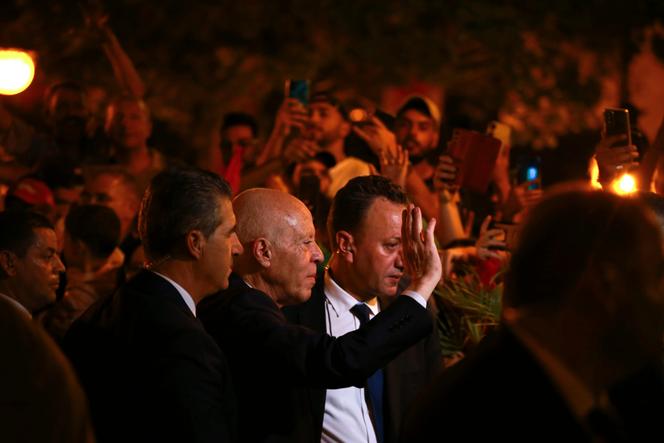


Tunisia's President Kais Saied was re-elected on Monday with 90.69% of the vote, the head of the electoral authority ISIE said on national television. Saied, 66, won Sunday's election by a landslide, with his challengers Ayachi Zemmal collecting 7.3% and Zouhair Maghzaoui 1.9% of votes cast, ISIE said. The turnout was 28.8%, the lowest since the country's 2011 revolution.
Three years after Saied staged a sweeping power grab, rights groups fear re-election will only further entrench his rule in the country, the only democracy to emerge from the Arab Spring uprisings.
With the ousting of longtime dictator Zine El Abidine Ben Ali in 2011, Tunisia prided itself on being the birthplace of those regional revolts against authoritarianism. Yet the North African country's path changed dramatically soon after Saied's election in 2019.
Saied's 2021 power grab saw him rewrite the constitution and crackdown on dissent, sparking criticism at home and abroad.
New York-based Human Rights Watch has said more than "170 people are detained in Tunisia on political grounds or for exercising their fundamental rights." His top challenger, Zammel, currently faces more than 14 years in prison, accused of having forged endorsement signatures to enable him to stand in the election.
Other jailed figures include Rached Ghannouchi, head of the Islamist-inspired opposition party Ennahdha, which dominated political life after the revolution. Also detained is Abir Moussi, head of the Free Destourian Party, which critics accuse of wanting to bring back the regime that was ousted in 2011.
